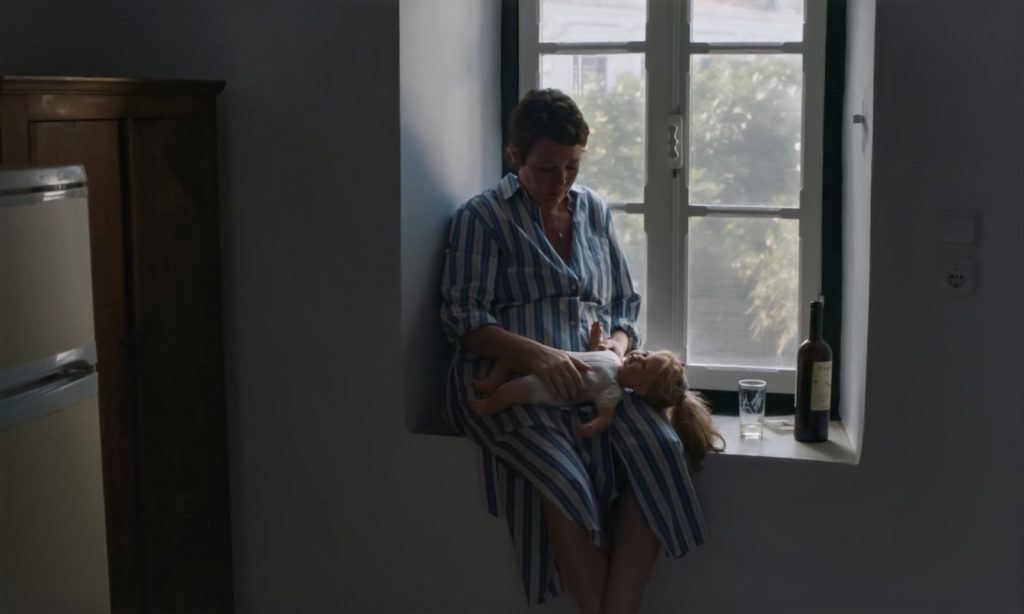By: Erykah Cameron
Maggie Gyllenhaal’s debut as a writer-director ÔÇÿThe Lost Daughter’, available on Netflix, is a drama that follows Leda (Olivia Colman) on holiday and explores her meeting a young mother, Nina (Dakota Johnson), who reminds her of her former self. The pair keep meeting on the beach and as Colman watches the young mother, a series of memories from her past unravel.
Colman’s Leda meets Nina and her young daughter, and they form an unexpected bond when the daughter goes missing for a short period of time, and Leda finds her and returns her to her worried mother. This then triggers a flashback for Leda, and we learn that she also once lost her daughter for a few minutes in a very similar situation, and at this point, we begin to see the parallels between the two mothers and their experiences.┬á
Gyllenhaal makes an effort to present parenthood, and particularly motherhood, in a way that we often don’t see on screen. Her representations of the role of a mother aren’t dependent on ÔÇÿgood’ or ÔÇÿbad’ binaries, and instead take into consideration the idea that a mother can actually be both or neither. She makes a point of not alienating either mother, despite some of their more questionable decisions, for example neglecting their children, and instead focuses on how much effort they put into being a mother, and the sacrifices that the role entails.
At one point, Leda says “I’m an unnatural mother”, which implies that there is a stigma around not naturally falling into the position of a mother, and allows for the idea that motherhood is hard, and is something that you have to work at. However, she is still no less of a mother than those who claim to be ÔÇÿnatural’ mothers. Nina also confides in Leda and says that she is depressed, which also tends to be a taboo subject and often ignored by the media, despite the reality that the majority of new mothers will experience postpartum depression of some kind.┬á

Both Leda and Nina are interesting characters to examine, as both mothers are shown to love their children a huge amount, while also having some form of resentment for their role as the primary caretaker of their children. For Leda especially, this becomes too much, and we learn that she actually left her children for three years when they were young, to be on her own and to do things for herself. We can assume that this experience of motherhood is what allows Leda to relate to Nina on a deeper level and helps her to bond with her and share things that she has learned with her. 
“Children are a crushing responsibility” is one of the things that Leda says in the film, and this really underpins a lot of what happens. It helps us to understand Leda and explain her motives for doing things the way that she does. However, some of her decisions are left with ambiguity in them, for instance when she steals the doll from Nina’s daughter. We never find out why she does this, and there are serious repercussions for her when she returns it, but there is still something about Leda that makes it hard to resent her for this, and as an audience, we almost feel sorry for her, even if she is in the wrong. Similarly, in Nina’s character, we question some of the things that she does in the film, but ultimately can’t help but empathise with her and her struggles.┬á


